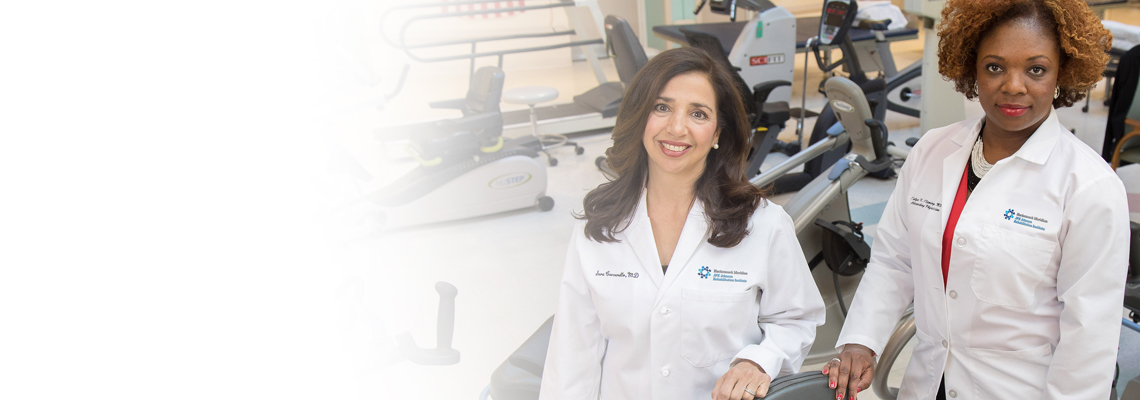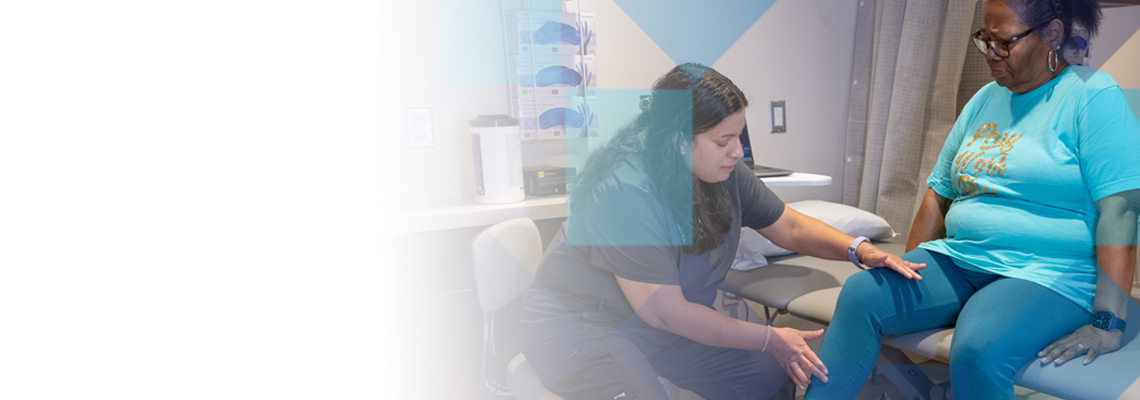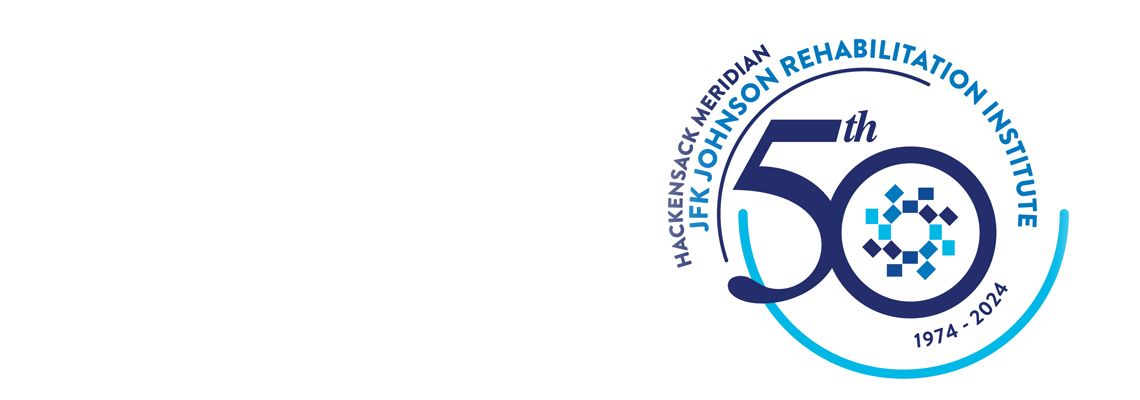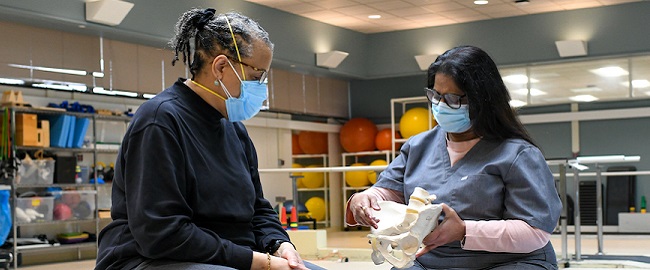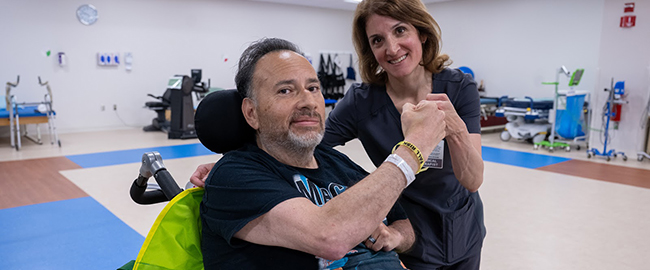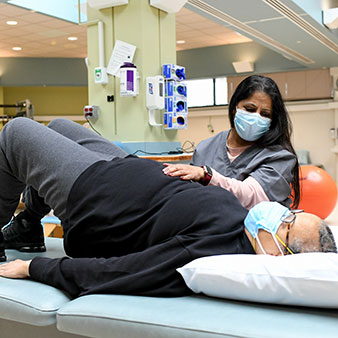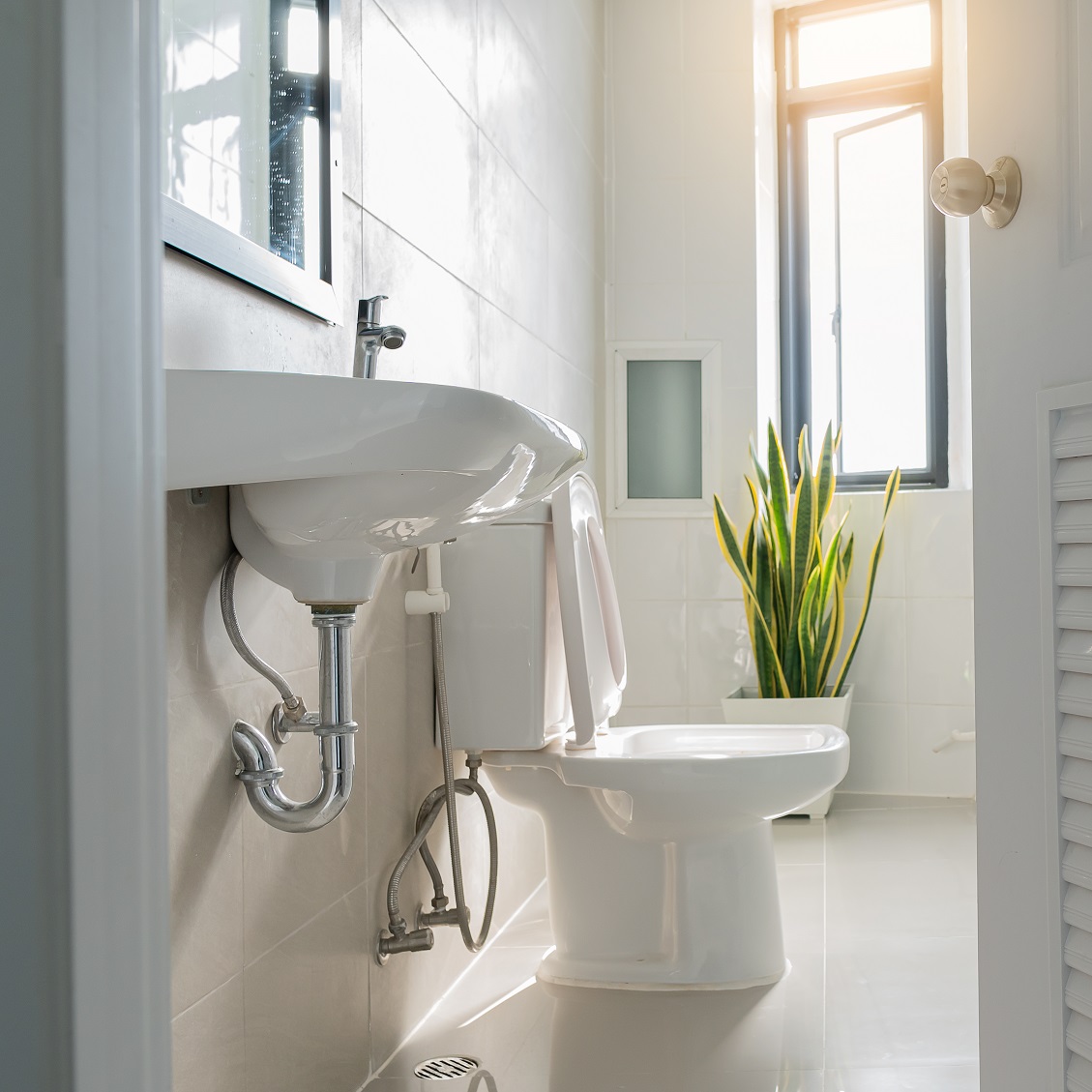Pelvic Floor Rehabilitation in New Jersey
Our specialists can help you with many pelvic problems, including:
- Chronic or long-term pelvic pain
- Overactive bladder syndrome
- Pelvic organ prolapse
- Pregnancy-related pain or dysfunction
- Prenatal and postpartum pelvic girdle pain and instability
- Recovery from episiotomy, tearing and cesarean birth
- Recovery from urogenital and prostatectomy and hysterectomy surgery
- Stress and urge urinary incontinence
- Urinary frequency or urgency
What is the Pelvic Floor?
Pelvic floor muscles in the base of your torso support the urinary and reproductive tracts and are responsible for bladder and bowel function and sexual pleasure. These core muscles also work with your hip and back muscles to support:- Women: Bladder, uterus, rectum, and vagina
- Men: Bladder, bowel, rectum, and urethra
Why Choose Hackensack Meridian Health for Pelvic Floor Physical Therapy
Nationally-Recognized
Our rehabilitation facilities are licensed by the State of New Jersey and meet rigorous quality standards in all areas of our operations and patient care to achieve national accreditation by the Joint Commission.
Rehabilitation Experts
Our rehabilitation experts specialize in the latest hands-on techniques to help patients overcome pelvic dysfunction and live pain-free.
Personalized Care
We build a rehabilitation program around your diagnosis, needs, goals and priorities. All sessions are one-on-one and conducted by a physical therapist in a private and comfortable treatment room.
Learn more about why you should choose Hackensack Meridian Health for pelvic floor therapy.
Frequently Asked Questions
If your pelvic floor muscles are weak or not functioning correctly, you may experience symptoms such as:
- Constipation
- Difficulty urinating
- Bladder and bowel incontinence
- Painful intercourse
- Pelvic organ prolapse
- Pelvic pain
- Urinary or fecal urgency
Our specially-trained physical therapists evaluate your muscle strength, identify which muscles to target and develop a personalized therapy program to help you strengthen them.
We use non-invasive and non-pharmacologic interventions whenever possible. In fact, many of our patients can even discontinue pain medication entirely. Most therapy programs run for six to eight weeks and may include several techniques, such as:
- Biofeedback
- Breathing exercises
- Core and pelvic floor exercises
- Education on self-management at home
- Massage
- Postural and strength training
Based on your initial evaluation, your therapist will create a personalized treatment plan. Treatment is hands-on and may include a combination of:
- Manual Therapy: Hands-on techniques to release tight muscles and improve tissue mobility.
- Therapeutic Exercise: Specific exercises to strengthen or relax the pelvic floor muscles.
- Biofeedback: A tool that helps you learn how to properly contract and relax your pelvic floor muscles.
- Patient Education: Guidance on diet, behavior modifications, and home exercises to help you manage your symptoms effectively.
65 James Street
Edison, NJ 08820

